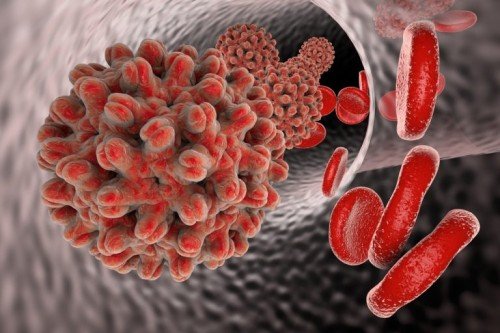
Hepatitis is a viral infection that affects the liver. It is a major public health concern, with over 300 million people worldwide currently living with chronic hepatitis B or C. Despite the prevalence of the disease, many people are still unaware of the causes, symptoms, and treatment options for hepatitis.
What is hepatitis?
Hepatitis is an inflammation of the liver that can be caused by a variety of factors, including viruses, alcohol, drugs, and autoimmune diseases. There are five main types of viral hepatitis: A, B, C, D, and E. Each type of hepatitis is caused by a different virus, and they all have different symptoms and treatments.
Hepatitis A: This type of hepatitis is spread through contaminated food and water, or through close contact with an infected person. It can cause symptoms such as fever, fatigue, nausea, vomiting, and abdominal pain. Hepatitis A usually clears up on its own within a few weeks, and there is a vaccine available to prevent it.
Hepatitis A is a viral infection that affects the liver. It is caused by the hepatitis A virus, which is primarily spread through contaminated food and water or close contact with an infected person. Hepatitis A can be acute, meaning it typically resolves on its own within a few weeks, or in rare cases, it can be severe and even fatal.A healthcare provider can diagnose hepatitis A by performing a blood test to check for antibodies to the virus. They may also perform a liver function test to check how well your liver is functioning.
In most cases, hepatitis A will resolve on its own without specific treatment. However, people with hepatitis A should get plenty of rest, eat a healthy diet, and avoid alcohol and certain medications that can further damage the liver. In some cases, hospitalization may be necessary for severe cases of hepatitis A.
Hepatitis B: This type of hepatitis is spread through contact with infected blood or bodily fluids, such as through unprotected sex, sharing needles, or from mother to child during childbirth. Symptoms can include fever, fatigue, joint pain, and jaundice (yellowing of the skin and eyes). Hepatitis B can be acute (short-term) or chronic (long-term), and there is a vaccine available to prevent it.
Hepatitis C: This type of hepatitis is spread through contact with infected blood, most commonly through sharing needles or receiving a blood transfusion before 1992. Many people with hepatitis C have no symptoms, but it can cause chronic liver damage if left untreated. There is no vaccine for hepatitis C, but there are effective treatments available that can cure the disease.
Hepatitis D: This type of hepatitis can only occur in people who are already infected with hepatitis B. It is spread through contact with infected blood or bodily fluids, and can cause severe liver damage. There is a vaccine available for hepatitis B, which also provides protection against hepatitis D.
Hepatitis E: This type of hepatitis is spread through contaminated food and water, and is most common in developing countries with poor sanitation. Symptoms can include fever, fatigue, and jaundice, and it usually clears up on its own within a few weeks.
Symptoms of hepatitis
Symptoms of hepatitis can vary depending on the type of virus and the severity of the infection. Some people with hepatitis may have no symptoms at all, while others may experience a range of symptoms such as:
-
Fatigue
- Abdominal pain
- Loss of appetite
- Nausea and vomiting
- Dark urine
- Pale stool
- Jaundice (yellowing of the skin and eyes)
- Joint pain
If you experience any of these symptoms, it is important to see a healthcare provider for a diagnosis.
Treatment for hepatitis
Treatment for hepatitis will depend on the type of virus and the severity of the infection. In many cases, acute hepatitis will clear up on its own with rest and supportive care. Chronic hepatitis may require ongoing treatment to prevent liver damage and other complications.
Hepatitis A and E usually do not require treatment, as they will clear up on their own within a few weeks. Hepatitis B and C can be treated with antiviral medications, which can help to prevent liver damage and reduce the risk of complications. Hepatitis D can be prevented by getting vaccinated against hepatitis B.
Prevention of hepatitis
Prevention is key when it comes to hepatitis. Here are some ways to reduce your risk of infection:
- Get vaccinated against hepatitis A and B
- Practice safe sex by using condoms
- Do not share needles or other drug paraphernalia
- Use caution when getting tattoos or body piercings
- Wash your hands thoroughly and frequently, especially before eating and after using the bathroom
- Avoid consuming contaminated food and water, especially when traveling to areas with poor sanitation
- Be cautious when handling blood or bodily fluids, especially if you work in healthcare or other high-risk professions
- If you have hepatitis B or C, take steps to prevent the spread of the virus to others, such as avoiding sharing personal items like toothbrushes or razors, and informing sexual partners and healthcare providers about your status.








